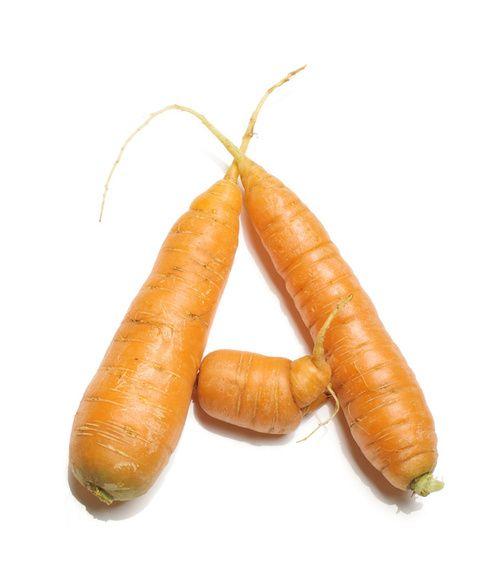Vitamin A deficiency it can involve visual problems, colds, developmental delay and depend on difficulty in assimilation. Let's find out the causes, consequences and foods to supplement it.
> Symptoms of Vitamin A Deficiency
> The cause
> Nutrition against vitamin A deficiency

Symptoms of Vitamin A Deficiency
Vitamin A is needed for the process involving sight and a first sign of vitamin A deficiency may be night blindness, that is, a delay in adapting to external light stimuli, when there are poorly lit environments. Prolonged deficiency can also lead to dry eyes or the formation of keratin debris in the conjunctiva.
A vitamin A deficiency it can also cause colds relapsing, dry hair, bone malformations, developmental delay, infections, dry, wrinkled and exfoliated skin.
Other symptoms are related to sensory perceptions, such as loss of the sense of smell, hardening of the salivary glands in the mouth, loss of appetite, fatigue, frequent styes. When this vitamin is missing, it can also lead to anemia, joint pain, underdevelopment of the testicles, infertility and spontaneous abortions.
The causes
Vitamin A deficiency occurs when the diet does not provide sufficient amounts of it or when the body cannot assimilate it as it should. This happens when you have pathologies such as ulcerative colitis, liver cirrhosis, cystic fibrosis, or bile duct obstruction.
Diabetes mellitus can also be a cause of vitamin A deficiency, as can hypothyroidism, pneumonia, chronic scarlet fever, and some respiratory or kidney infections, such as chronic nephritis.
The 5 foods richest in vitamin A.
Nutrition against vitamin A deficiency
Vitamin A is a fat-soluble vitamin that is derived from two sources, retinoids and carotenoids. Retinoids are found in animal sources (liver, eggs, dairy products), while carotenoids, such as beta-carotene, are found in abundance in plant foods, such as dark or yellow vegetables and in carrots.
Dandelion, garlic, parsley, lettuce, cress, spinach, endive, celery, broccoli, brussels sprouts and cabbage are rich in them. Among the colorful vegetables and fruits that contain a lot of vitamin A, in addition to carrots, we find melon, apricots, peaches, squash, mango, tomato, papaya, cherries and watermelon.
Other important sources are royal jelly and pollen, wheat germ, spirulina, cod liver oil and soya oil.
READ MORE
Natural vitamin A supplements: which ones and when to use them
Other articles on vitamin A deficiency:
> Cod liver oil rich in vitamin A: price and where to buy it


























